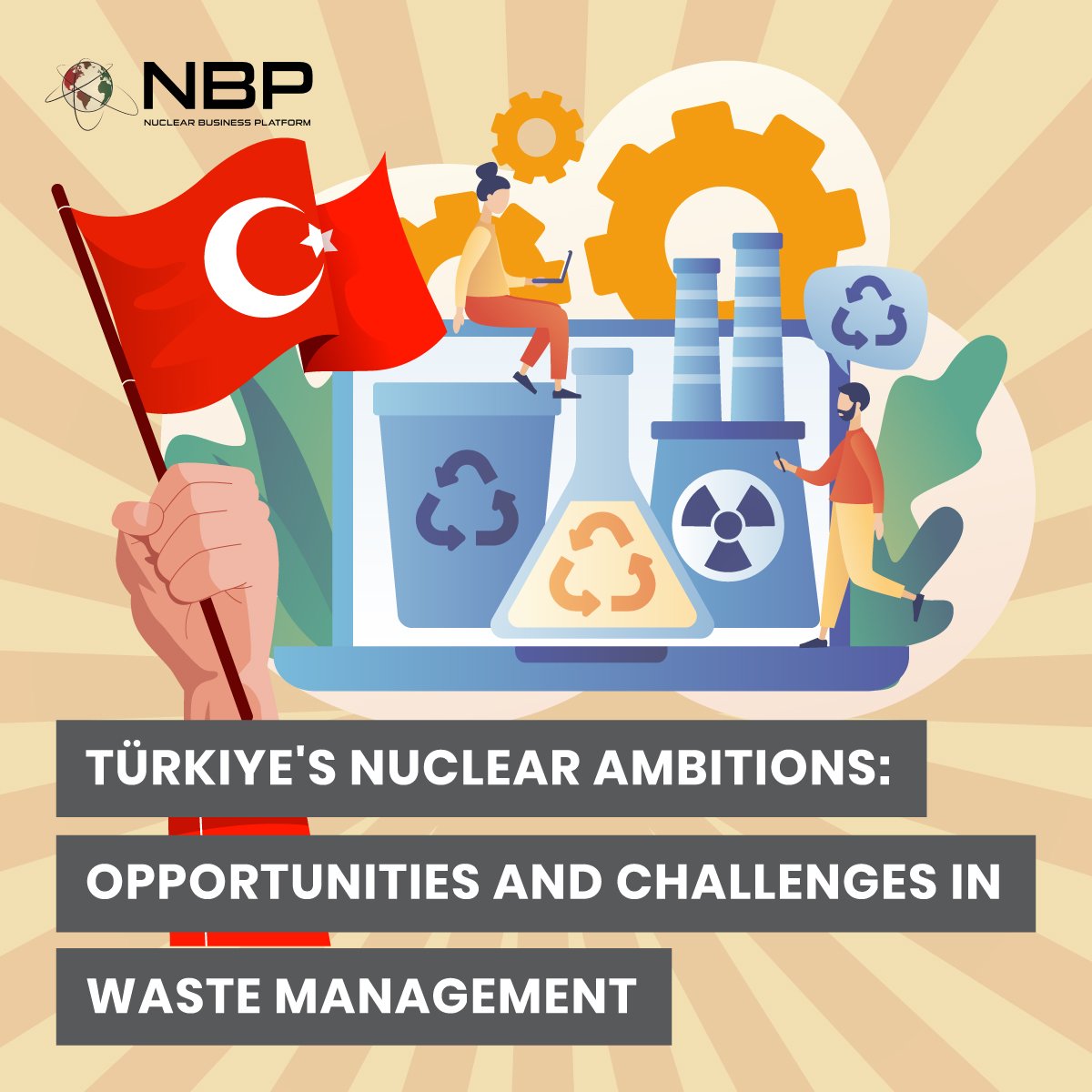Türkiye's Nuclear Ambitions: Opportunities and Challenges in Waste Management
Türkiye's pursuit of a 20 GW nuclear capacity by 2050 underscores the nation's commitment to energy security. However, a vital focus rests on comprehensive nuclear waste management strategies. The safe handling, processing, and disposal of spent nuclear fuel are paramount concerns as the country adopts more nuclear energy.
Regulatory Framework
Türkiye's Regulation on Radioactive Waste Management (2013) provides the framework for waste handling, alongside other regulations covering licensing, transportation, and fuel cycle safety. Nuclear power plant operators must dedicate funds specifically for decommissioning and waste management. This unique financial model within the power sector ensures ongoing funds for these critical tasks.
Akkuyu and Future Plants: Waste Management Strategies
The Akkuyu Nuclear Power Plant (NPP) leverages an intergovernmental agreement with Russia, with Rosatom handling fuel supply and waste management. Spent fuel will undergo on-site storage before potential reprocessing in Russia. Reprocessed high-level and intermediate-level waste would then return to Türkiye for final disposal.
Discussions for Türkiye's proposed second and third NPPs in Sinop and Thrace acknowledge the need for robust waste management plans. Collaborations with international partners like South Korea's KEPCO or China will likely see waste responsibilities resting with the project company. The choice between reprocessing or direct disposal will be a critical part of these project negotiations.
Deep Geological Repositories: Türkiye's Path Forward
While Türkiye's current strategy hinges on reprocessing in Russia, the long-term focus must turn to final disposal of reprocessed waste. Deep Geological Repositories (DGRs) are the internationally favored solution. Extensive geological studies are needed to identify suitable sites within Türkiye. Collaboration with countries such as Finland, Sweden, and others who have advanced DGR programs will be crucial.
Business Opportunities Abound
Türkiye's nuclear waste management needs present lucrative opportunities for international firms specializing in:
Final Waste Disposal: Engineering and project implementation (e.g., Fortum, Deep Isolation).
Waste Processing and Storage: Expertise in conditioning and storage (e.g., Enresa, Hanford Vit Plant ).
Innovative Packaging Solutions: (e.g., PacTec, Container Products Corporation).
Recommendations for Türkiye
To ensure success in handling nuclear waste, Türkiye should:
Develop a Comprehensive Long-Term Plan: Map out all necessary waste management activities and facilities.
Strengthen Regulatory Framework: Ensure the highest safety and environmental standards.
R&D Investment: Focus on back-end fuel cycle technologies.
Acquire Expertise: Collaborate internationally to build knowledge on DGR development and operation.
Prioritize Transparency: Build public trust through clear communication.
Secure Long-Term Funding: Recognize the significant financial investment needed for DGRs.
Türkiye's expanding nuclear program presents a unique platform for international waste management companies to collaborate on cutting-edge solutions. By prioritizing a robust waste management infrastructure, Türkiye can solidify its nuclear energy path while demonstrating a commitment to environmental responsibility and public safety.



